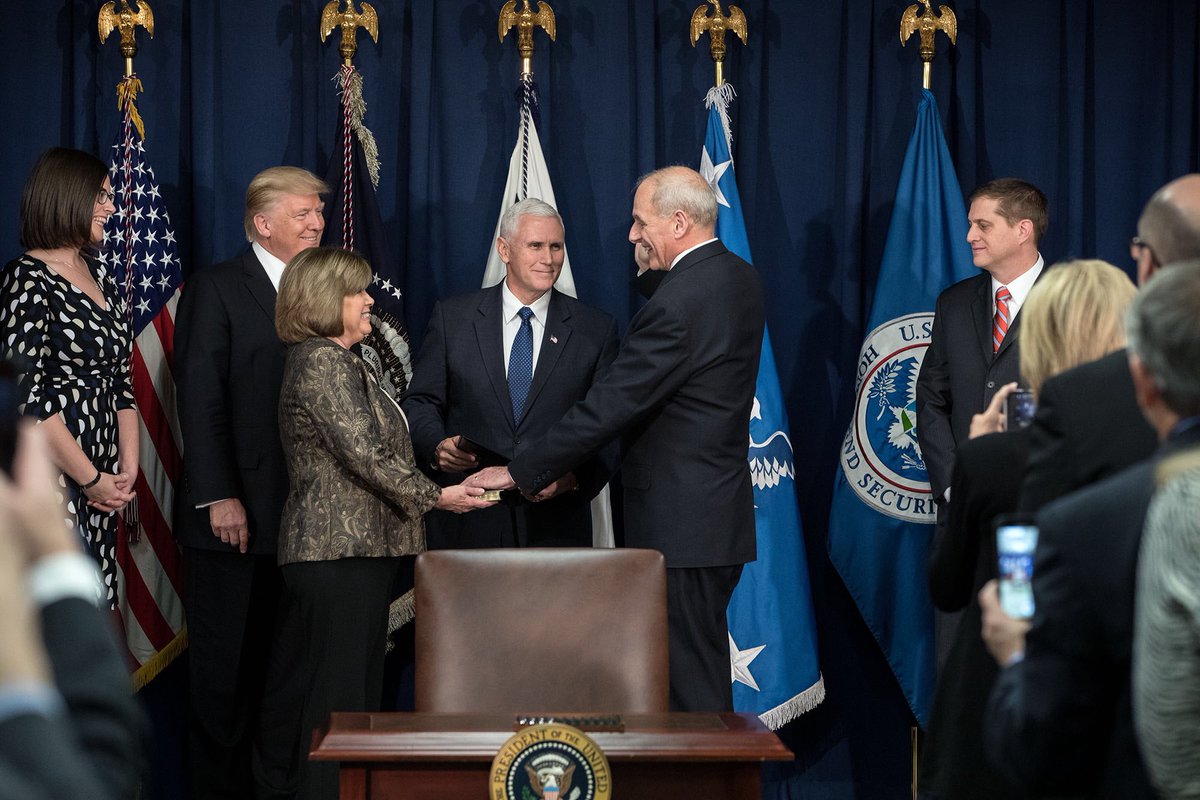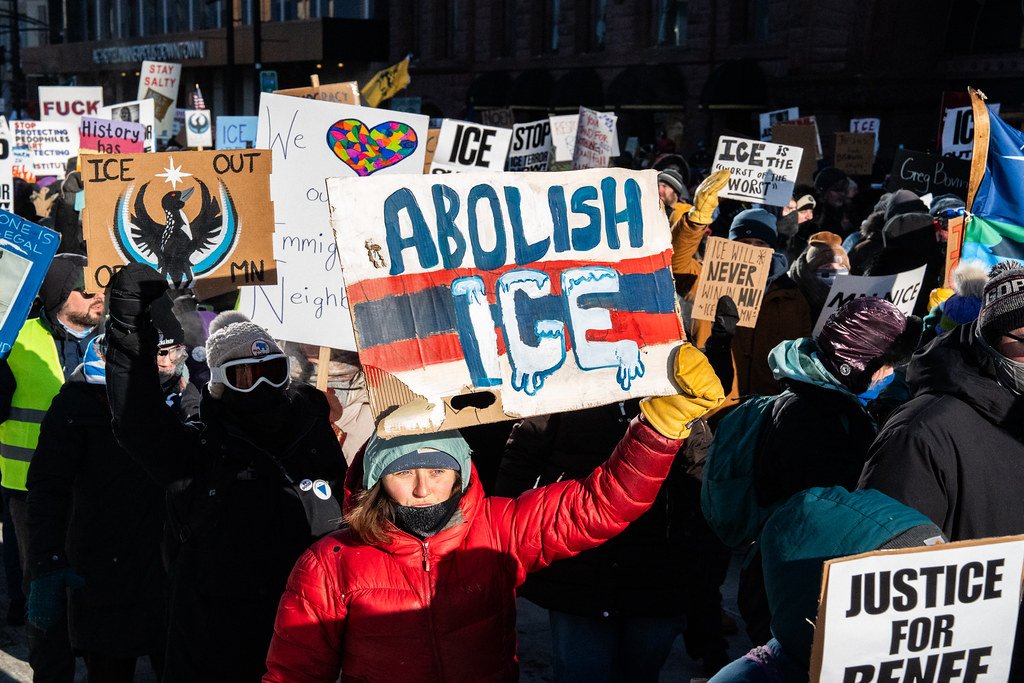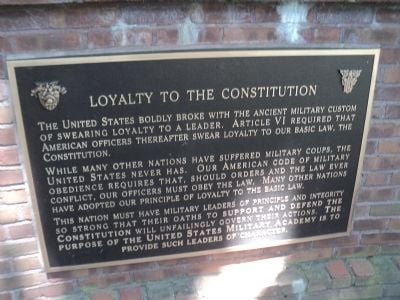Did the Justice Department Just Admit Doubts Over Trump’s Oath?
Don’t look now, but the Justice Department has just responded to key themes Benjamin Wittes and I have been writing about in connection with President Trump’s oath of office.

Don’t look now, but the Justice Department has just responded to key themes Benjamin Wittes and I have been writing about in connection with President Trump’s oath of office.
Yes, excitement over the litigation surrounding the Trump administration’s two travel bans has died down somewhat in recent weeks, in part because of the calmer rollout of the revised executive order and in part because of the frenzy of unrelated activity on issues ranging from the Russia Connection to the healthcare debacle. Yet plenty of cases are still ongoing. And despite the revised order’s relatively careful lawyering and subdued tone, some—though not all—federal judges are continuing to push back against the administration.
On Friday, the Justice Department filed a particularly interesting brief in International Refugee Assistance Project v. Trump, one of the cases that Ben and I flagged in our original post on the judiciary’s response to the revised order. Judge Theodore Chuang of the U.S. District Court for the District of Maryland issued a preliminary injunction blocking enforcement of section 2 of the travel ban, which limits entry into the United States from six majority-Muslim countries. Now the government is appealing the case to the U.S. Court of Appeals for the Fourth Circuit.
A close look at the government’s brief in that appeal suggests that the department is taking seriously the question of the President’s oath as a matter before the courts. But even more strikingly, the brief seems to implicitly admit some measure of doubt as to whether Trump’s oath will be accepted at face value. These are the same doubts that, as Ben and I argued, have lead judges to act so forcefully against the executive order, in some cases arguably by moving beyond the borders of settled law.
Let me explain.
The Justice Department's brief in IRAP frames the question of Trump’s oath in the context of whether or not comments by Trump and his aides suggesting a discriminatory purpose behind the executive order are or are not fair game for the courts to consider. This question—and the case behind it, McCreary County v. ACLU, which permits inquiry into context as a means of evaluating legislative purpose under the Establishment Clause, but forbids “judicial psychoanalysis of a drafter’s heart of hearts”—has emerged as a key point of contention in the judicial dispute over the executive order.
Both judges who ruled against the revised travel ban—Judge Chuang and Judge Derrick Watson in the U.S. District Court for the District of Hawaii—relied heavily on statements by Trump’s team about both the original and revised order to find that the purpose of the order was likely founded on religious animus. In contrast, the judges who have ruled in favor of the revised order or indicated their belief that the order should be upheld have argued that Trump’s campaign-trail promises to institute a “Muslim ban,” and White House policy advisor Stephen Miller’s comments that the revised order would have “the same basic policy outcome” as the first order, and the many other statements cited have nothing to do with the revised order’s constitutionality under the Establishment Clause.
By contrast, Judges Chuang and Watson argue that courts may permissibly examine the context behind government action under McCreary, and that the apparent animus of Trump and his aides toward Muslims is so clearly expressed that courts are not straying into the “judicial psychoanalysis” forbidden by McCreary.
This is the minefield onto which the latest Justice Department brief in IRAP steps. There’s a lot going on in the brief, which is 72 pages long. But for the purposes of an inquiry into the presidential oath, the relevant portion of the brief focuses on the Establishment Clause and runs as follows:
- In “second-guess[ing] the President’s stated purpose,” the district court failed to apply the “presumption of regularity” generally due to government actions.
- While McCreary allows an inquiry into the context surrounding governmental purpose, that inquiry is constrained to “the operative terms of governmental action and official pronouncements”—which Trump’s off-the-cuff statements and those of his aides are not.
- Even if we do read McCreary to allow an examination of comments “beyond official acts,” statements made by Trump prior to his swearing the oath of office on January 20th remain outside the scope of the court’s inquiry.
The section of the brief on this last point is worth quoting at length:
Virtually all of the President’s statements on which the district court relied were made before he assumed office— before he took the prescribed oath to “preserve, protect and defend the Constitution,” U.S. Const. art. II, § 1, cl. 8. Taking that oath marks a profound transition from private life to the Nation’s highest public office, and manifests the singular responsibility and independent authority to protect the welfare of the Nation that the Constitution necessarily reposes in the Office of the President. Virtually all of the statements also preceded the President’s formation of a new Administration, including Cabinet-level officials who recommended adopting the Order. And they predated the President’s decision—made after courts expressed concern regarding the Revoked Order—to avoid further litigation and instead to adopt the new, revised Order in response to courts’ concerns.
In other words, the Department of Justice is arguing that Trump’s oath is a kind of turning point as to whether or not courts may consider his comments as evidence of purpose regarding the travel ban. Everything he said before 12:01pm on January 20th, 2017 is off the table—the comments of a private citizen, even if a private citizen who was first the Republican nominee for President of the United States and then the President-elect. In contrast, statements made by Trump after swearing the oath are presumptively within the scope of the judiciary’s inquiry. The moment of oath-taking is thus—as the Justice Department describes it—an instance of “profound transition,” on which a great deal turns.
This is interesting for a number of reasons. To begin with, this argument, in connection with the brief’s point about the presumption of regularity, responds directly to some themes addressed in a recent essay by Ben and me exploring what we believe to be the widespread and unprecedented distrust of Trump’s oath of office. We argued then that Trump’s apparent lack of fidelity to the oath and his inability to “take care that the laws be faithfully executed” were systematically undermining the presumption of regularity with which courts have traditionally approached government action—a presumption that follows directly from the judiciary’s trust in the President’s civic virtue, which is itself solemnized in the moment of swearing the oath.
After the first round of unexpected rulings against the revised executive order, we then went on to argue that the judiciary’s striking lack of deference followed from its mistrust of Trump’s oath. At issue, we wrote, is “the question of whether the judiciary means to actually treat Trump as a real president or, conversely, as some kind of accident—a person who somehow ended up in the office but is not quite the President of the United States in the sense that we would previously have recognized.”
So it is notable, to say the least, that the Department of Justice is now directly citing Trump’s swearing of the oath as a positive reason why the judiciary should uphold the revised executive order and linking it specifically to the normal presumption of regularity.
Now typically, the Justice Department does not feel the need to remind the judiciary that the President of the United States swore an oath and that a presumption of regularity in his actions flows from that. It is actually a remarkable show of weakness for the Justice Department to have to make this point.
In citing this, the department is subtly (or not so subtly) emphasizing that Judge Chuang’s injunction was outside the scope of normal behavior by the judiciary—that the judge did not grant the President the presumption of regularity to which he is normally entitled. And it’s arguing for a return to the regular order and the normal landscape of judicial behavior in the form of deference as expressed through the presumption.
There is a good argument that this position is the legally correct one. And under any other president, it would probably prevail.
But the fact that the Justice Department has to make this argument about Trump suggests that Ben and my sociological argument about the way the judiciary is responding to Trump is correct—and that the Justice Department is trying to impress upon judges that they don’t get to decide on the sincerity of the President’s oath. It’s an attempt to rebuild the normal structure of the judicial relationship with the presidency. How judges receive it remains to be seen.
Moreover, the brief’s attempt to draw a clean line between statements made before and after the oath is itself a bit fraught. To the extent that Trump has repeatedly proven unable to restrain himself from loudly echoing the themes of his pre-presidential statements, he may erode the ability of the courts to rely on the oath as any kind of demarcation even if they are inclined to take it seriously. Needless to say, in making this argument, the department is also putting a lot of faith in Trump’s ability not to say anything in the future that overtly ties the revised executive order to the goal of discriminating against Muslims. By the brief’s own argument, after all, anything he says as President may be fair game. So what happens the next time the Solicitor General’s office wakes up to an ill-thought-out 3 AM tweetstorm about Syrian refugees?
This is not an entirely hypothetical question. Last week, former Acting Solicitor General Neal Katyal filed a declaration in support of Hawaii’s continuing litigation against the travel ban, citing Trump’s response to the Hawaii court’s first ruling against the order: at a rally, Trump referred to the revised order as a “watered-down version of the first one” and said, “I think we ought to go back to the first one and go all the way.”
The brief shows weakness in another respect too. Even as it cites Trump’s oath, it suggests some serious doubts on the part of the Department of Justice as to whether this particular president is going to get the presumption of regularity to which it asserts he is entitled. It repeatedly cites Trump’s consultation with various Cabinet members and agency heads, including the Secretary of Homeland Security, the Secretary of State the Attorney General, and the Director of National Intelligence, in crafting the revised executive order—an implicit response to Judge Chuang’s comments that the first executive order “did not involve traditional interagency review by relevant departments and agencies.” But most notably, in its analysis of McCreary, the brief also asserts that:
The Order, in contrast, conveys no religious message and was revised to eliminate any misperception of religious purpose. And it reflects the considered views of the Secretary of State, the Secretary of Homeland Security, and the Attorney General, whose motives have not been impugned.… Virtually all of the statements [by Trump] also preceded the President’s formation of a new Administration, including Cabinet-level officials who recommended adopting the Order (emphasis added).
Cabinet-level officials, of course, swear their own oaths upon taking office. The not-so-subtle message is that even if the judiciary can’t trust the President’s judgment and the President’s oath, it can trust the judgment and perhaps the oaths of those who serve under him at the highest level. The brief does not specifically cite the Cabinet members’ oaths, but it does specifically cite their good faith—the presumption of which, as Ben and I have argued, flows directly from the oath. Their motives, unlike those of the President, the brief says, “have not been impugned.”
In other words, by emphasizing the good faith of Trump’s subordinates, the brief evinces at least a tinge of doubt about the good faith of Trump himself. If we could trust the President’s good faith as of the moment of swearing the oath, even if only as a matter of deference, there would be no need to rely on that of his Cabinet. The structure of the argument—that the President swore an oath and thus is entitled to a presumption of regularity, and that his cabinet is entitled to the same presumption even if you can’t trust the President individually—seems to acknowledge that the judges of the Fourth Circuit might at the very least have questions about Trump's oath.
This argument—trust the cabinet members if you can’t trust the president—suggests something of a fracturing of the unitary executive. It also raises a question asked of Ben by an audience member after his recent talk on our essay on the oath. As she put it: “If you don’t believe the president’s oath … do you feel it undermines the oath of anyone he’s appointed?”
You can listen yourself to Ben’s answer, in which he emphasized both the need to judge each individual on his or her own merits and the fact that many people who engage with this administration at length and at a high level will unavoidably come away tarnished by the President’s own lack of constitutionally-mandated care. Intentionally or not, the Justice Department may have just teed up this question before the courts.


.png?sfvrsn=48e6afb0_5)


